Open a new movie viewing experience, / Laser TV /Home Projector / Traditional LCD TV, which one is better?
Open a new movie viewing experience, Laser TV/ Home Projector / Traditional LCD TV, which one is better?
After the continuous development of home audio and video, today's home viewing equipment is basically divided into three types, LCD TVs, projectors and laser TVs.
As the most traditional home appliance, LCD TV is the source of the development of viewing equipment, and its acceptance and use are the most widely. The latter two have developed rapidly in recent years, because these two viewing methods are novel and interesting, the screen used together exceeds the size of traditional LCD TVs, and the viewing screen is large enough, which enhances the viewing experience.
Working principle
LCD TV
Liquid crystal display (LCD) is abbreviated as LCD (Liquid Crystal Display), which uses a substance between solid state and liquid state, an organic compound with regular molecular arrangement, which is in a transparent liquid state when heated, and a cloudy solid state of crystalline particles after cooling. substance.
The molecular structure of the liquid crystal used in the liquid crystal display is arranged like a thin matchstick, which is called Nematic liquid crystal, and the liquid crystal display made of this type of liquid crystal is also called LCD (Liquid Crystal Display). The LCD TV is to add a voltage to the liquid crystal between the two glasses, and reproduce the picture through the change of molecular arrangement and tortuous change.
Home Projector

Projector (projector, also known as projector) is a device that can project images or videos onto a screen. It can be connected to a computer, VCD, DVD, game console, DV, etc. through different interfaces to play the corresponding video signal. Widely used in homes, offices, schools and entertainment venues.
The basic principle of the projector is to use optical elements to enlarge the shape and outline of the workpiece, and then project it onto the screen. It can be used for profile measurement with transmitted light and also with reflected light to measure the surface shape of different holes. In addition to viewing movies, projectors are often used for the measurement of complex contours and small workpieces.
Laser TV
Laser TV (LASER TV) is a fourth-generation TV product that uses a laser light source as a display light source and cooperates with front projection display technology to form images. It is equipped with a special projection screen and can receive radio TV programs or Internet TV programs.
The laser light source refers to: using red, green, and blue solid-state lasers as light-emitting light sources, or using monochromatic solid-state lasers to excite phosphors as light-emitting light sources, or using solid-state lasers combined with LEDs as a hybrid technology projection light source as a system light source. Access the image through a TV signal and display the image on a dedicated projection screen using DLP technology or LCOS technology. Its color gamut coverage can theoretically be as high as more than 90% of the color gamut of the human eye, which is incomparable to the current LED TV's highest 62% color gamut coverage. The improvement of the color gamut coverage can not only make the whole TV picture look more real, layered and transparent, but also the high-resolution display combined with the micro-display technology will greatly improve the TV viewing presence. .
source:https://www.163.com/dy/article/GOS51OP40552JRVE.html

How to choose?
Maybe people are often confused and don’t know which viewing method is better to choose, but in fact, each viewing method has its own advantages and certainties, and also has its own value and importance.
In general, the cost performance of projectors and laser TVs is better than that of TVs, but the picture quality of laser TVs is better than that of projectors. In the field below 65 inches, TVs can also compare the cost performance with projectors. If they exceed 65 inches, then Basically nothing comparable, the price is too expensive. For TVs, the price goes up with the size of the screen. The bigger the screen, the more expensive it is. Projection does not have this problem.
Moreover, the larger the screen, the more space required. At this time, the flexibility and portability of the screen are very advantageous. Think about it, if it is a huge 120-inch or #150inch screen, it is fixedly installed on the wall, not only the wall The body has to bear a lot of gravity and takes up a lot of space
Advantages of projectors and laser TVs:
1. The screen is large, the size is large, and the space is strong, suitable for watching movies, with a strong sense of home theater atmosphere, and the screen size can be adjusted.
In terms of size, many inexpensive smart projectors can already project a 150-inch large screen in home use scenarios, which is equivalent to the size of eight 50-inch TV screens. The large screen (display) is undoubtedly a projector. The biggest advantage is that it can also make the audience feel like an immersive Guanyin movie in the cinema.
2. Convenience, convenience and space saving.
At present, most projectors can be placed on the coffee table or bedside table because they support keystone correction, which can be side-projected and easily moved. In terms of portability, the projector is much higher than the TV that can only be fixed on the wall or placed on the TV cabinet.
The projector and screen are lightweight and portable, and can be moved anywhere, either in the living room or in the bedroom, especially when watching movies in bed.
3. Compared with LCD TVs, it is not easy to be visually fatigued, and the "diffuse reflection" principle of projectors is more eye-friendly, which has also become the reason why many parents choose projectors. "Diffuse reflection" means that the picture seen by the human eye is reflected from the wall or curtain. It has no blue light damage or screen flicker damage, so it will not cause harm to the eyes.
4. Low power consumption

Disadvantages of choosing a projector and a laser TV:
1. The requirements for shading are higher, and the ambient light has a greater impact on the projection.
Projectors and laser TVs are greatly affected by ambient light. Since the curtains or walls themselves do not emit light, the screen display effect of projectors will be slightly worse than that of LCD TVs.
2. The bulb has a limited life and needs maintenance, otherwise it will affect the brightness of the projection.
3. Sometimes exposed interfaces and wiring will affect the overall appearance and noise.
4. The detail of the picture quality is slightly inferior to that of LCD TVs
Advantages of LCD TV:
1. High definition, delicate and smooth picture quality, high brightness
The viewing screen is mainly compared in terms of resolution and brightness. The screen resolution of smart LCD TVs is high, basically 4K, and the color display is very delicate and realistic. Smart projectors or laser TVs are currently dominated by 1080P and support 4K output. In terms of brightness, smart TVs are overall better than projectors.
2. Not affected by ambient light.
3. It is suitable for long-term viewing at home.
4. Long service life.
5. The flat and thin walls are beautiful and formal and beautiful after hanging.
Choosing an LCD TV Disadvantages:
1. The size can be up to 85 inches (100 inches is rare).
2. The bigger size is too expensive.
At present, the mainstream of smart TVs in households is still 55-65 inches in size. Although there are indeed 100-inch TVs, the price will reach hundreds of thousands.
3. It has a greater impact on eye fatigue than projection.
All in all,the biggest problems of laser TVs, projectors and LCD TVs are screen size, picture quality, price, and shading.
If you have enough budget, if you want to build a home theater like a movie theater to watch movies at home, you can choose a laser TV, a projector, and a large light-resistant screen. The picture quality and light-resistant effect are comparable to LCD TVs. , but the experience is indeed the strongest.
If you are very keen on picture quality and will watch more in the bright daytime, it is recommended to choose an LCD TV. The details of the projected picture will never be comparable to that of LCD TVs or OLED TVs, although the current laser TVs and some large lumens The brightness of ultra-short-throw projectors is good, but the picture quality is close to not surpassing.
but! ! ! Who doesn't want to have a huge screen at home to experience the movie viewing effect in a movie theater? The charm of home theater is unrivaled


#led  #lcd #lasertv #projector #bigscren #projectorscreen #4kprojector #ust4kprojector #120inch #150inch #lunms #ustalr #hometheater #homexinema #imaxscreen #homemoice #theatersetup #hometv
#lcd #lasertv #projector #bigscren #projectorscreen #4kprojector #ust4kprojector #120inch #150inch #lunms #ustalr #hometheater #homexinema #imaxscreen #homemoice #theatersetup #hometv



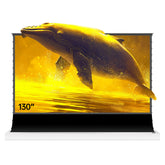
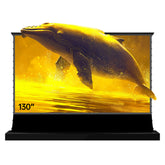
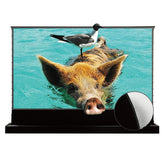
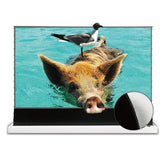
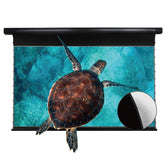
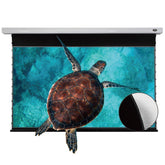
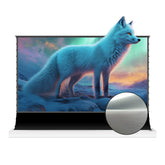
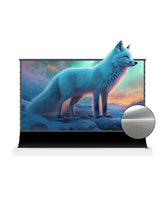
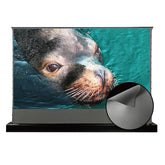
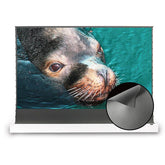

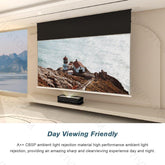
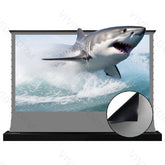
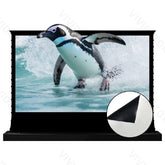
Leave a comment
Please note, comments need to be approved before they are published.